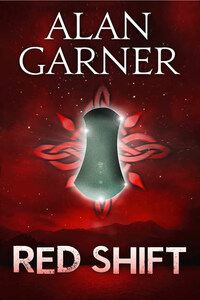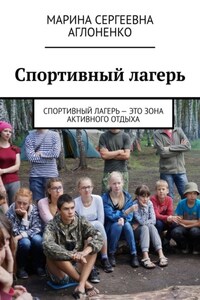A bottle of cold tea; bread and a half onion. That was Father’s baggin. Mary emptied her apron of stones from the field and wrapped the baggin in a cloth.
The hottest part of the day was on. Mother lay in bed under the rafters and the thatch, where the sun could send only blue light. She had picked stones in the field until she was too tired and had to rest.
Old William was weaving in the end room. He had to weave enough cuts of silk for two markets, and his shuttle and loom rattled all the time, in the day and the night. He wasn’t old, but he was called Old William because he was deaf and hadn’t married. He was Father’s brother.
He carried the cuts to market on his back. Stockport was further, but the road was flatter. Macclesfield was nearer, but Old William had to climb Glaze Hill behind the cottage to get to the road. The markets were on Tuesday and Friday, and so he was weaving and walking always: weave and walk. ‘Then where’s time for wedding?’ he used to say.
Mary opened the door of Old William’s room. ‘Do you want any baggin?’ she said. She didn’t speak, but moved her lips to shape the words.
‘A wet of a bottle of tea,’ said Old William. He didn’t speak, either. The loom was too loud. Mary and Old William could talk when everybody else was making a noise.
‘Is it sweet?’ he said.
‘Yes. I made it for Father.’
‘Where’s he working?’
‘Saint Philip’s,’ said Mary.
‘Haven’t they finished that steeple yet?’ said Old William.
‘He’s staying to finish. They want it for Sunday.’
‘Tell him to be careful, and then. There’s many another Sunday.’
Old William was careful. Careful with weaving, careful carrying. He had to be. The weight could break his back if he fell on the hill.
‘Mother!’ Mary shouted up the bent stairs. ‘I’m taking Father his baggin!’
She walked under the trees of the Wood Hill along the edge of Lifeless Moss.
The new steeple on the new church glowed in the sun: but something glinted. The spire, stone like a needle, was cluttered with the masons’ platforms that were left. All the way under the Wood Hill Mary watched the golden spark that had not been there before.
She reached the brick cottage on the brink of the Moss. Between there and the railway station were the houses that were being built. The railway had fetched a lot of people to Chorley. Before, Father said, there hadn’t been enough work. But he had made gate posts, and the station walls, and the bridges and the Queen’s Family Hotel; and he had even cut a road through rock with his chisel, and put his mark on it. Every mason had his mark, and Father put his at the back of a stone, or on its bed, where it wouldn’t spoil the facing. But when he cut the road on the hill he put his mark on the face once, just once, to prove it.
Then Chorley must have a church next, and a school.
Father had picked the site for the quarry at the bottom of the Wood Hill. Close by the place, at the road, there was stone to be seen, but it was the soft red gangue that wouldn’t last ten years of weather. Yet Father had looked at the way the trees grew, and had felt the earth and the leaf-mould between his fingers, and had said they must dig there. And there they had found the hard yellow-white dimension stone that was the best of all sands for building.
The beech trees had been cleared over a space, and two loads of the big branches had saved them coals at home for a year. It was one of the first memories of her life; the rock bared and cut by Father, and silver bark in the fire.
Now the quarry seemed so small, and the church so big. The quarry would fit inside a corner of the church; but the stone had come from it. People said it was because Father cut well, but Father said that a church was only a bit of stone round a lot of air.
Mary stood at the gate and looked up. High clouds moving made the steeple topple towards her.
‘Father!’
She could hear his hammer, tac, tac, as he combed the stone.
The golden spark was a weathercock. It had been put up that week, and under its spike was the top platform. Father’s head showed over the edge of the platform.
‘Below!’ His voice sounded nearer than he looked.
‘I’ve brought your baggin!’ Mary shouted.
‘Fetch it, then!’
‘All the way?’
‘Must I come down when I’m working?’
‘But what about the Governor?’ said Mary.
‘He’s gone! I’m the Governor of this gang! There’s only me stayed to finish! Have you the tea?’
‘Yes!’
‘Plenty of sugar?’
‘Yes!’
‘I can’t spit for shouting! Come up!’
Mary hitched her frock and put the knot of the baggin cloth between her teeth and climbed the first ladder.
The ladders were spiked and roped, but the beginning of the steeple was square, a straight drop, and the ladders clattered on the side. She didn’t like that.














